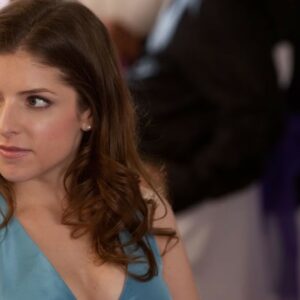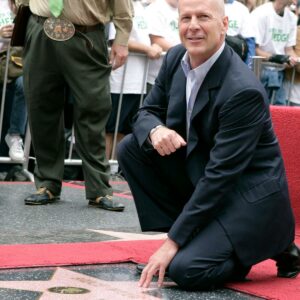Emilia Clarke, a household name for her portrayal of Daenerys Targaryen in Game of Thrones, is not only a talented actress but also a passionate advocate for diversity in the film industry. Her voice in this conversation is not just about adding to the chorus of support but is rooted in a genuine belief that inclusivity and representation are vital for the future of cinema. Clarke’s commitment to diversity transcends the screen, shaping her career decisions and public discourse around the topic. In this article, we will explore her thoughts on diversity, her actions toward promoting it, and why she believes it is essential for the future of cinema.
Emilia Clarke on Diversity and Inclusion
In numerous interviews, Clarke has been candid about the importance of diversity, stating that it goes far beyond meeting quotas or ticking boxes. She highlights that true diversity in film means embracing the wide spectrum of human experiences, perspectives, and stories. “We need to tell stories that reflect the world we live in—stories from people of all backgrounds, cultures, and identities. This isn’t just about representation; it’s about giving a voice to those who have been historically underrepresented,” Clarke said in an interview with The Hollywood Reporter.
Clarke’s perspective challenges the traditional views of the film industry, which has often been criticized for its lack of inclusivity. She acknowledges that while progress has been made, much work remains to be done. Her call to action includes pushing for more diverse talent at every level of production, from casting to direction to production design. She sees this as a fundamental shift that the industry needs to make to create richer, more authentic stories that resonate with audiences across the globe.
The Importance of Representation
The film industry, like many other sectors, has a history of sidelining voices from underrepresented communities. This lack of representation has led to the perpetuation of stereotypes and a narrow portrayal of human experiences. Clarke believes that for cinema to remain relevant and impactful, it must evolve to reflect the diverse world in which we live.
Representation in film isn’t just about placing people of different races, genders, or sexual orientations in front of the camera. It’s about ensuring that these stories are told from authentic perspectives. Clarke has often emphasized the importance of having diverse voices behind the camera as well. She argues that diversity in storytelling leads to more nuanced and layered narratives, which in turn can challenge audiences’ preconceived notions and broaden their understanding of the world.
Clarke’s views align with the growing body of research that supports the notion that diversity in media has a positive impact on society. Studies have shown that films and television shows with diverse casts perform better at the box office and receive higher ratings from critics and audiences alike. This is because these stories reflect the complexity of the human experience, making them more relatable and resonant with a wider audience.
Emilia Clarke’s Advocacy in Action
Clarke’s advocacy for diversity is not just a theoretical stance; it is something she actively pursues in her career. After the success of Game of Thrones, she founded her own production company with the goal of bringing underrepresented voices to the forefront. Clarke has made it clear that diversity is a priority in her projects, and she is committed to using her platform to create opportunities for others.
In an interview with Variety, Clarke explained that her production company is focused on championing female-led productions and providing opportunities for marginalized communities. “I want to tell stories that haven’t been told before, stories that challenge the status quo and give a voice to those who have been silenced for too long,” she said.
One of Clarke’s most notable projects is the upcoming film Above Suspicion, where she plays the lead role in a true crime story set in rural America. The film, directed by Phillip Noyce, highlights the systemic issues of class and gender that often go overlooked in mainstream cinema. Clarke’s involvement in the project is a testament to her commitment to telling stories that shine a light on underrepresented communities and experiences.
The Power of Storytelling
For Clarke, storytelling is one of the most powerful tools for creating change. She believes that films have the ability to shape perceptions, challenge stereotypes, and inspire action. “When we see ourselves represented on screen, it validates our experiences and reminds us that our stories matter,” Clarke said in an interview with The Guardian. She believes that by telling diverse stories, filmmakers can help create a more inclusive and equitable society.
Clarke’s passion for storytelling extends beyond her work in film and television. She is also an advocate for diversity in literature and theater, two mediums that have historically been more inclusive than Hollywood. Clarke has spoken at length about the importance of supporting diverse voices in all forms of media, arguing that inclusivity in storytelling is crucial for the future of the arts.
The Role of Film in Shaping Society
Cinema has always been a reflection of society, but it also has the power to shape it. Films have the ability to influence public opinion, challenge social norms, and inspire movements. Clarke believes that for cinema to continue to play this role, it must become more inclusive. She argues that by embracing diversity, the film industry can create content that not only entertains but also educates and empowers audiences.
Clarke’s views on the role of film in shaping society are shared by many industry professionals. There is a growing recognition that the stories we tell on screen have a profound impact on the way we view the world. By including a wider range of voices and perspectives, filmmakers can help break down barriers and promote understanding between different communities.
The Future of Diversity in Film
As someone who has been part of one of the most globally successful TV series of all time, Clarke’s opinions carry significant weight in the entertainment world. She remains optimistic about the future of diversity in film but emphasizes that progress will require continued effort from everyone involved. “It’s not just about making space for diverse voices; it’s about amplifying them and ensuring they have the opportunities to thrive,” Clarke said.
Clarke is hopeful that the film industry will continue to evolve and become more inclusive, but she knows that change won’t happen overnight. She has called on industry leaders to prioritize diversity in their hiring practices and to support projects that tell stories from underrepresented perspectives. Clarke believes that by doing so, the industry can create a more equitable and inclusive future for cinema.
Emilia Clarke’s Legacy
Clarke’s advocacy for diversity is just one aspect of her legacy in the entertainment industry. She has become a role model for aspiring actors and filmmakers who are looking to make their mark in Hollywood. Her commitment to inclusivity and representation has earned her praise from both her peers and fans alike.
As Clarke continues to push for change in the industry, her influence will undoubtedly have a lasting impact. She has already helped pave the way for more diverse voices in film, and her work will continue to inspire others to do the same. Clarke’s dedication to promoting diversity in cinema is a testament to her belief in the power of storytelling and her commitment to creating a more inclusive and equitable world.
Conclusion
Emilia Clarke’s views on the importance of diversity in film highlight the critical role that inclusivity plays in creating compelling, meaningful content. As the industry evolves, her advocacy serves as a reminder that diversity is not just a trend—it’s a vital component of storytelling that resonates with audiences and drives cultural progress.
Clarke’s efforts to promote diversity both in front of and behind the camera are a testament to her belief that the film industry has the power to shape society for the better. By embracing a wider range of voices and perspectives, filmmakers can create content that is not only entertaining but also impactful and transformative. Clarke’s legacy as an advocate for diversity will continue to influence the future of cinema for years to come.





